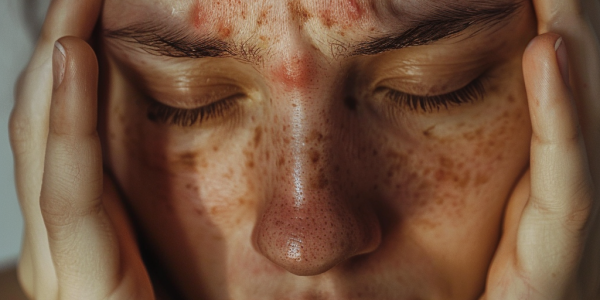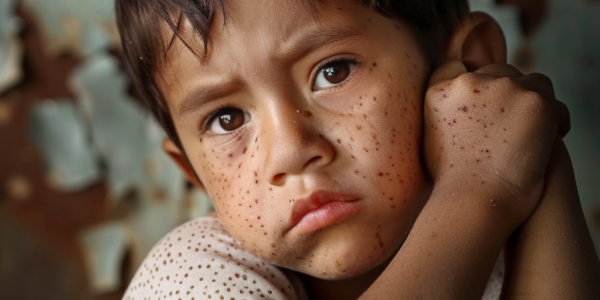Mediterranean Diet and Omega-3s May Help Combat Acne, Study Finds
Discover how a Mediterranean diet and omega-3 fatty acid supplements derived from algae could potentially help individuals struggling with mild to moderate acne. Learn about the study published in the Journal of Cosmetic Dermatology that tracked participants who saw a reduction in acne severity after reaching target omega-3 fatty acid levels. Find out how lifestyle modifications, including dietary changes and omega-3 supplementation, could complement traditional acne treatments for improved skin health.
High-Salt Diets Linked to Increased Risk of Eczema, Study Finds
Recent research suggests a potential link between high-salt diets and an increased risk of developing eczema, also known as atopic dermatitis. A study found that for every 1-gram increase in daily sodium excretion, the odds of eczema flare-ups increased by 22%. High salt intake was associated with an 11% higher risk of severe eczema, while following recommended guidelines reduced the risk by 12%. Reducing dietary sodium intake could be a cost-effective intervention for managing eczema, according to researchers.
The Impact of Stress on Skin and Hair Health
Learn how stress can impact your skin and hair health, as explained by dermatologists. Discover how stress hormones can exacerbate skin conditions like acne, eczema, and psoriasis, while also accelerating the aging process and affecting hair health.
Concerning Trends in Sun Safety Knowledge Among Young Adults
Recent surveys have revealed concerning trends regarding sun safety knowledge among young adults, with a significant portion not associating suntans with skin cancer risks and admitting to using sunscreen only when reminded by others. Healthcare professionals have observed similar gaps in knowledge and risky behaviors among their younger patients, emphasizing the importance of educating and promoting sun-safe practices, especially among the younger population.
La Roche-Posay Hosts Free Skin Cancer Screening Event in NYC
La Roche-Posay is hosting a free skin cancer screening event in New York City to raise awareness about sun safety and early detection of skin cancer. With over 100,000 new cases of melanoma expected in the US this year, early detection is crucial for a high survival rate. La Roche-Posay’s annual campaign, SOS – Save Our Skin, aims to educate the public on the dangers of UV rays and the importance of sunscreen. Visitors to the event will receive free skin checks, samples of Anthelios sun care products, and sun safety educational materials.
Understanding the Warning Signs of Skin Cancer
Learn about the warning signs of skin cancer and the importance of early detection and treatment. Discover the seven primary warning signs of skin cancer and tips for prevention, including limiting exposure to UV rays and wearing protective clothing.
Dermatology Times Celebrates Rosacea Awareness Month with Weekly Quizzes
April is Rosacea Awareness Month, dedicated to raising awareness about the chronic skin condition. Dermatology Times is committed to educating and engaging the audience with weekly quizzes aimed at increasing understanding and promoting proactive management strategies. Stay tuned for the weekly quizzes and let’s work together to make a difference this Rosacea Awareness Month.
Link Between Eczema and Cognitive Impairment in Children
Recent research has revealed a concerning link between eczema and cognitive impairment in children with neurodevelopmental comorbidities. The study, published in Jama Dermatology, examined a weighted sample of over 69.7 million U.S. children, of which 13.2% had atopic dermatitis. The findings indicated that children with neurodevelopmental comorbidities, such as ADHD or learning disabilities, faced a two to threefold higher risk of cognitive impairment when they also had eczema. These findings shed light on the potential cognitive implications of eczema in children with neurodevelopmental comorbidities, emphasizing the significance of comprehensive assessments and further research to better understand and address these associations.








